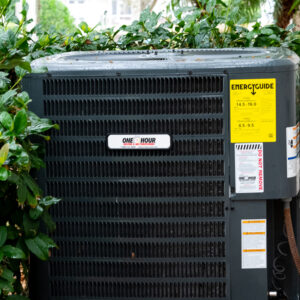HVAC is one of those things that is easily taken for granted until something goes wrong. People who would not dream of neglecting their cars are bad about maintaining their HVAC systems.
Here are some good reasons to stay on top of routine maintenance:
• You will be safer, healthier, and more comfortable in your home.
• Your HVAC system will be more energy-efficient and eco-friendly.
• You will save money on heating and cooling bills. Almost half of home energy consumption goes to heating and cooling.
• Your HVAC system will last longer.
• Routine maintenance is a condition of many warranties.
The Importance of Having Your HVAC System Inspected by a Professional
Is HVAC maintenance a good do-it-yourself project? There are a handful of chores that will help keep your system up and running between inspections.
You can — and should — regularly change the air filters according to the manufacturer’s recommendations. You should keep an outdoor unit free of grime and debris, make sure that indoor vents are unblocked, and routinely check the battery on your thermostat.
Otherwise, HVAC maintenance should be left to licensed, experienced professionals. There are lots of moving parts on both aging models and modern versions featuring cutting-edge technology. HVAC experts have the training and skill to spot potential problems. They can resolve minor issues before they become unpleasant, costly surprises.
What to Expect from your HVAC System
Depending on your equipment, a thorough system checkup takes anywhere from one to two hours. Inspectors go down a lengthy checklist that covers everything from saving energy to improving air quality. Here are some of the most basic services:
• Checking the refrigerant pressure and coolant level.
• Calibrating the thermostat.
• Inspecting electrical wiring, contacts, relays, and capacitors.
• Cleaning the condensate line and evaporator coil.
• Inspecting the condenser, fan components, and outdoor disconnect.
• Testing for proper airflow inside your home.
• Checking the filters.
Inspectors tighten everything up and clean and lubricate equipment to ensure that it is at peak performance. They make minor repairs and replace small parts when necessary. They might add refrigerant.
They will also perform tests and calculations to ensure that your equipment is the perfect size for your home. Even top-quality systems perform poorly if they are too small or too large.
When the inspection is complete, they will go through it with you and recommend keeping the HVAC system in tip-top shape. They will not make major repairs or replace expensive parts without consulting you first.
When to Schedule Inspections
Yearly inspections are recommended for newer systems, but aging units need more attention. Most conscientious homeowners schedule a checkup in spring and another in fall to be on the safe side.
Dirt, aging, wear and tear, and extreme temperatures take a toll on HVAC equipment. However, just like with cars, many repairs are preventable.
Investing in routine maintenance will prolong the life of your HVAC system and pay off for years to come.